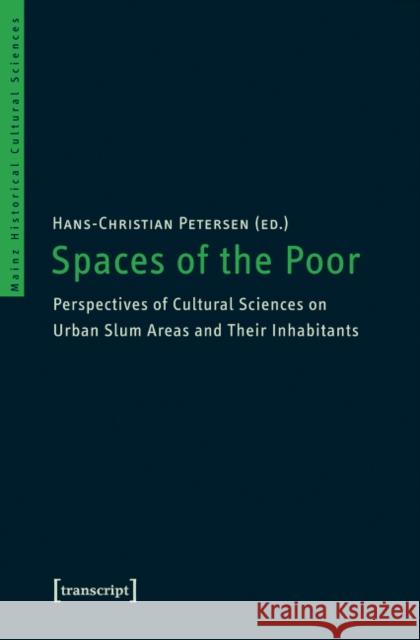Spaces of the Poor: Perspectives of Cultural Sciences on Urban Slum Areas and Their Inhabitants » książka
Spaces of the Poor: Perspectives of Cultural Sciences on Urban Slum Areas and Their Inhabitants
ISBN-13: 9783837624731 / Angielski / Miękka / 2013 / 250 str.
Spaces of the Poor: Perspectives of Cultural Sciences on Urban Slum Areas and Their Inhabitants
ISBN-13: 9783837624731 / Angielski / Miękka / 2013 / 250 str.
(netto: 165,19 VAT: 5%)
Najniższa cena z 30 dni: 172,74
ok. 30 dni roboczych
Bez gwarancji dostawy przed świętami
Darmowa dostawa!
What do we know about the urban impoverished areas of the world and the living environment of its inhabitants? How did the urban poor cope with their surroundings? How did they interpret and adopt urban space in order to fight against their position at the periphery of society? This volume takes up these questions and investigates how far approaches of cultural sciences can contribute to overcome the exotification of the ghetto (Loic Wacquant) and instead to look at the heterogeneity and individuality behind the facades. It opens new perspectives for the research of poverty and inequalities that do not stop at collective categories.
What do we know about the urban impoverished areas of the world and the living environment of its inhabitants? How did the urban poor cope with their surroundings? How did they interpret and adopt urban space in order to fight against their position at the periphery of society? This volume takes up these questions and investigates how far approaches of cultural sciences can contribute to overcome the "exoticization of the ghetto" (Loïc Wacquant) and instead to look at the heterogeneity and individuality behind the facades. It opens new perspectives for the research of poverty and inequalities that do not stop at collective categories.











